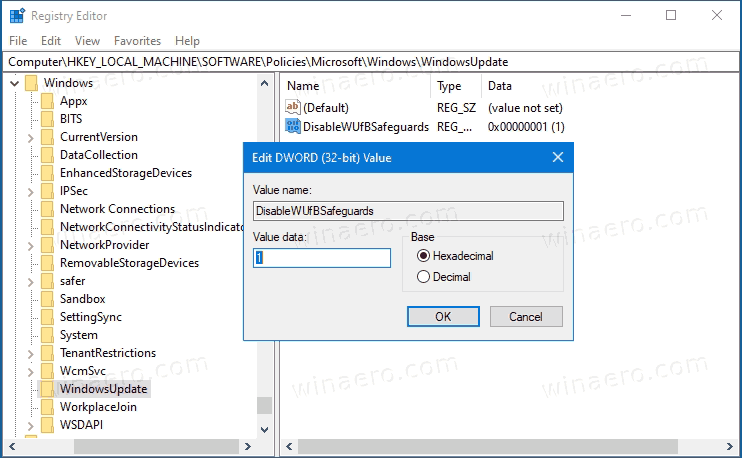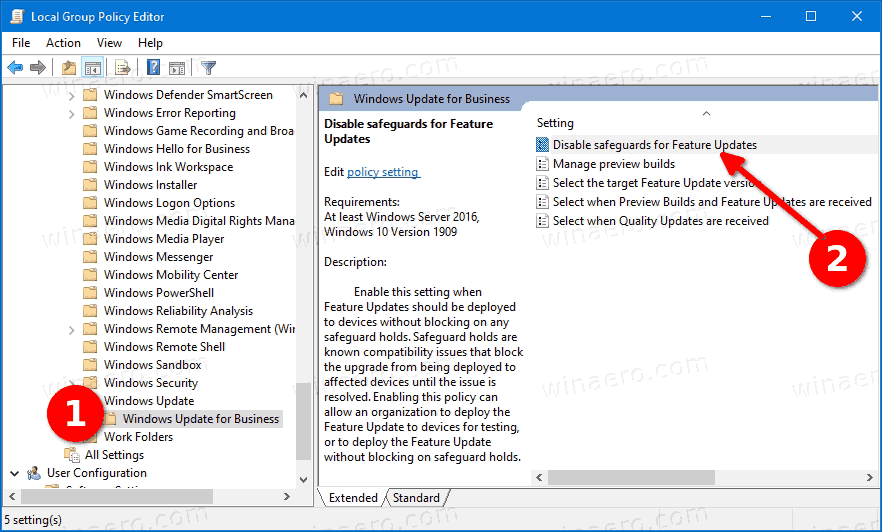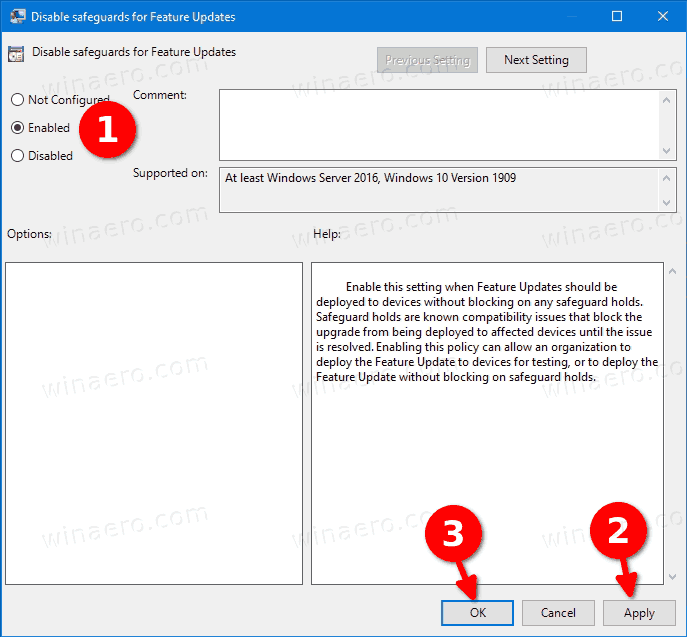How to Disable Feature Update Block Safeguard Holds in Windows 10
As you may already know, not every user is able to get the most recent Windows 10 version right after its release. It usually takes quite long before it lands on all supported devices, due to Microsoft resolving compatibility issues with software and hardware, or just because of bugs in the OS.
Advertisеment
To address this issue, Microsoft has added a new Group Policy option, which, when enabled, allows to bypass the upgrade block for devices are not receiving the update. The option is called Disable safeguards for Feature Updates, and is available for devices running Windows 10 version 1909 and above with installed patches issued in October, 2020.
This post will show you how to enable or disable safeguard holds for the upgrade block in Windows 10.
Microsoft is now working closely with hardware and vendors to improve the upgrade experience. The company will use its artificial intelligence/machine learning tech to highlight potential problem areas before and after rollouts begin. Windows 10 is designed to work on a variety of hardware, and the list of possible hardware combinations is actually huge. Due to this, there can always be a hardware incompatibility that may prevent you device from receiving the most recent Windows 10 version via Windows Update right now.
While there is nothing to prevent the user from getting the ISO image from the Microsoft's web site, the Windows Update upgrade path will remain locked. The new Group Policy allows opening it, despite having any possible compatibility issues.
Warning! Proceed with caution! Disabling safeguards does not guarantee your device will be able to successfully update. The update might still fail and will likely result in a bad experience since you are bypassing the protection against known issues.
This post will show you how to enable or disable safeguard holds for the upgrade block in Windows 10.
To Disable Feature Update Block Safeguard Holds in Windows 10
- Open Registry Editor.
- Go to the following Registry key:
HKEY_LOCAL_MACHINE\SOFTWARE\Policies\Microsoft\Windows\WindowsUpdate. See how to jump to the desired Registry key with one click. - If you do not have such a key, then just create it.
- Here, create a new 32-bit DWORD value DisableWUfBSafeguard. Note: Even if you are running 64-bit Windows, you still need to use a 32-bit DWORD as the value type.

- Set its value data to 1 to disable safeguard hold upgrade blocks.
- Restart Windows 10 to apply the change.
You are done.
Note: To undo the change, delete the above mentioned DisableWUfBSafeguard value, or set it to 0.
To save your time, you can use the following ready-to-use Registry files:
The undo tweak is included.
Alternatively, you can use the gpedit.msc app to apply the change. However, the Local Group Policy Editor app is only available in Windows 10 Pro, Enterprise, or Education editions.
Enable or Disable Disable Upgrade Block Safeguard Holds in Group Policy
- Open the Local Group Policy editor app, or launch it for all users except Administrator, or for a specif user.
- Navigate to Computer Configuration \ Administrative Templates \ Windows Components \ Windows Update \ Windows Update for Business on the left.
- On the right, double-click on the policy setting Disable safeguards for Feature Updates.

- Set the policy to Enabled to bypass the upgrade block for feature updates (if any).

- Click on Apply and OK.
- Setting the policy to Disabled or Not configured will enable all upgrade blocks.
That's it.
Support us
Winaero greatly relies on your support. You can help the site keep bringing you interesting and useful content and software by using these options:
